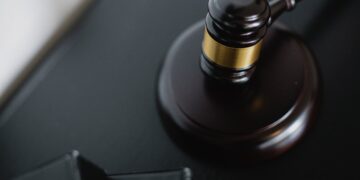In personal injury cases, the outcome can often hinge on a “battle of the experts.” Part of this battle often involves parties filing a Daubert motion to try to exclude the other party’s expert witness. When a trial court grants such a motion, it can end the case before it ever gets to a jury.
Recently, in Moore v. Intuitive Surgical, Inc., No. 19-10869, 2021 WL 1572580, at *3 (11th Cir. Apr. 22, 2021), the Eleventh Circuit reversed a trial court’s exclusion of an expert in a personal injury case and, in so doing, reversed the trial court’s entry of summary judgment against the plaintiff. In Moore, the Eleventh Circuit reminded trial courts that the Daubert analysis is a multi-faceted one that requires trial courts to engage in a disciplined, multi-part analysis of an expert’s proposed opinion.
A. Legal Framework
The Daubert analytical framework is familiar to us, but worth summarizing here at the outset. When determining whether to admit a putative expert’s opinion, a trial court must conduct a three-pronged inquiry. These three prongs are (1) the “qualification” prong; (2) the “reliability” prong; and (3) the “helpfulness” prong.
The qualification prong asks whether “the expert is qualified to testify competently regarding the matters he intends to address.” The reliability prong asks whether “the methodology by which the expert reaches his conclusions is sufficiently reliable as determined by the sort of inquiry mandated in Daubert.” And the helpfulness prong asks whether the expert’s “testimony assists the trier of fact, through the application of scientific, technical, or specialized expertise, to understand the evidence or to determine a fact in issue.”
B. The Facts of Moore
The Moore case involved a plaintiff who had undergone a robotically-assisted laparoscopic hysterectomy procedure. The plaintiff alleged that a tool used by her doctor—specifically, a pair of electrified miniature scissors—had leaked electrical current during the operation and caused her injury (specifically, by burning her left ureter). The tool, which was later recalled, was produced by the defendant, Intuitive Surgical, Inc.
Moore had hired an experienced surgeon, Dr. Michael Hall, to offer an expert opinion in the case. Although Dr. Hall had performed over four thousand hysterectomies, he had not performed a robotically-assisted laparoscopic hysterectomy, which was the kind that the plaintiff had undergone. Nor had Dr. Hall used the electrified scissors that the plaintiff blamed for her injuries. Still, Dr. Hall had testified that the tools used in both robotically-assisted and non-robotically-assisted hysterectomies are “essentially the same” (e.g., they both, for example, used electrical current).
The trial court excluded Dr. Hall’s testimony, holding that Dr. Hall was not qualified under Daubert. Dr. Hall was unqualified, the trial court reasoned, because he had not used the specific tool in question and could not adequately describe the differences between the instruments used in robotic surgery and traditional surgery.
C. Takeaways from Judge Lagoa’s Opinion in Moore
The Eleventh Circuit, in an opinion authored by Judge Lagoa, reversed. In so reversing, the Court made three points worth noting.
1. The trial court must conduct distinct “qualifications” and “reliability” inquiries.
First, the Court stressed that a trial court’s analysis cannot blur the lines between Daubert’s qualification prong and its reliability prong. The qualification prong focuses on the person; the reliability prong, the opinion. The Court wrote:
“Qualifications and reliability remain separate prongs of the Daubert inquiry that answer two separate questions. A witness is qualified as an expert if he is the type of person who should be testifying on the matter at hand. An expert opinion is reliable if it was arrived at through, among other things, a scientifically valid methodology.”
The Court held that the trial court had conflated the inquiry when it ruled that Dr. Hall was not qualified to offer an opinion because he could not adequately describe the differences between the instruments. Even if true, Dr. Hall’s inability to do so went to the reliability of his opinion, not his qualifications. And, importantly, the Court held that Dr. Hall was qualified to opine that the electrified tools had caused the burning injury suffered by the plaintiff. The court explained that Dr. Hall was qualified to “perform a differential etiology on a patient who suffered a thermal injury during a hysterectomy performed with a da Vinci robot not because of his familiarity with the robot, but because of his familiarity with differential etiologies in the context of gynecological procedures.”
On this point, the Court made clear that, when engaging in a qualifications analysis, trial courts should take care to not view fields of expertise in a hyper-specialized way. As the Court explained, “nothing in the record suggests that robotically-assisted laparoscopic hysterectomies should be treated as a different field of expertise for Daubert purposes than traditional laparoscopic hysterectomies.” Indeed, the Court noted that record showed otherwise, as (i) “the district court and both causation experts said that a hysterectomy is performed in the same manner and carries the same risks regardless of whether or not a robot is used,” (ii) “Dr. Hall said that a ‘hysterectomy is done the same way’ regardless of the modality,” and (iii) the opposing exert “testified that ‘the steps or the way we do the hysterectomy’ is essentially the same.” This wasn’t a case where, for example, Dr. Hall was testifying about “the cause of an injury sustained during an open-heart surgery or [a] brain operation.”
2. The “exacting analysis” of an opinion’s foundations applies to the reliability prong.
Second, and related to the distinction between the qualifications and reliability inquiries, the Court reminded trial courts that, while it is tasked with conducting an “exacting analysis of the foundations” of an expert’s opinion, that analysis takes place when vetting an opinion’s reliability, not the expert’s qualifications. The trial court had cited the “exacting analysis” language when deciding whether Dr. Hall was qualified as an expert. This was error. The Court explained:
“[I]n its written order, the district court stated that in order to ‘determine whether Dr. Hall is qualified, the Court must conduct an ‘exacting analysis of the foundations’ of his opinion’ . . . . But we have never used this ‘exacting analysis’ language in reference to an expert’s qualifications. In fact, our precedent is clear that this analysis applies to only an expert’s methodology in reaching his opinion, and thus is relevant to only the reliability prong.”
3. An expert need not have personally used an allegedly defective product.
Third, the Court again reminded trial courts that an expert need not possess firsthand experience with the defective product to testify that it caused a plaintiff’s injury. As the Court observed, “[r]equiring plaintiffs in product liability actions to hire expert witnesses who are also clients, customers, or regular users of the defendant’s product would set a burden that is much too high.”
D. Conclusion
If you plan to offer expert testimony at a future federal trial, it’s worth reading Moore first. The Eleventh Circuit reminds trial courts about the “dos” and “don’ts” of the Daubert analysis and nicely applies the law to a nuanced set of facts.











